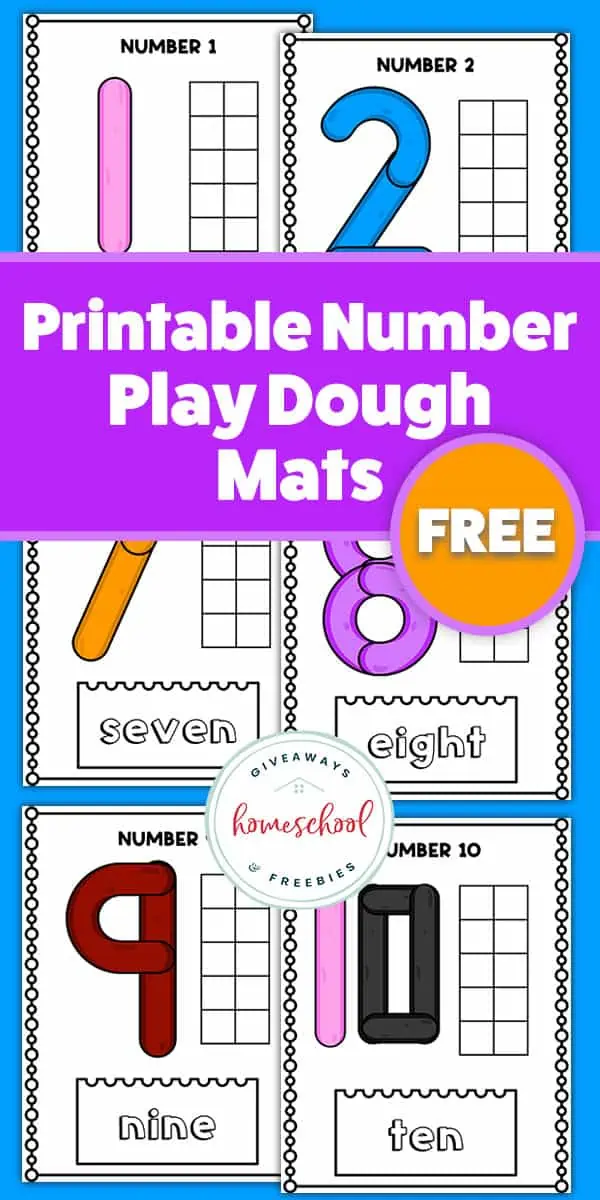Helping Students Improve Mathematics Skills
Published:
April 1, 2022

Contributor:
Abby Banks
Disclosure: This post may contain affiliate links, meaning if you decide to make a purchase via my links, I may earn a commission at no additional cost to you. See my disclosure for more info.
Math class might be one of your worst school memories. But it doesn’t have to be a struggle in your homeschool! Your kids can have high math achievement and even enjoy learning new concepts with some of the ideas shared below. The good news is that you really can improve mathematics skills for each of your kids with some strategies and resources.
(Note: This is a sponsored post. All opinions are my own. Read our disclosure policy here.)
Why It’s Important to Understand Basic Mathematics Skills
Basic mathematics skills form the foundation of more complex learning. It’s like any other academic discipline or real-life adventure. You need to know the basics first and know them well before you can add on to them.
Basic Math Skills Students Need to Know
What are the core concepts that students need to master in mathematics?
- addition
- subtraction
- multiplication
- division
- percentages
- fractions
- decimals
The basic concepts of addition, subtraction, multiplication, and division are usually the first math skills that children are taught within the first few years of school. It’s always helpful to show students how they use these skills in daily life. And it’s a great idea to find hands-on ways to experience these concepts and improve their number sense.
Analytical Thinking and Reasoning Skills
Math requires analytical thinking. When you pair this together with reasoning, you are talking about increased problem solving skills. So, it’s important to set the foundation early for young children and their mathematics education so that in the upper grades they will be able to draw on this math fluency.
Mathematical skills are mastery-based. You have to understand the underlying concepts as a first step before moving on to harder math concepts. So the best way to do this is to make sure elementary school students are proficient in the basic math skills. When students become confident and proficient in the particular skills outlined above, they will be able to keep a positive attitude as they continue with higher mathematics achievement into high school and beyond.
Ways to Improve Math Skills
Working on math skills doesn’t have to always involve a pile a worksheets! Here are various strategies that you can use with your kids to improve those important basic skills.
Activities to Improve Math Skills
One of the best strategies in math is to use manipulatives to help kids gain a concrete understanding of abstract mathematics concepts. The more kids can use a hands-on and tactile approach with math, the better they will understand and remember the mathematical ideas. Manipulatives allow students to engage with math problems and see the concepts in everyday life.
Practicing numeracy skills, such as counting, noticing patterns, estimating, and adding and subtracting works well with a 1-100 number chart as the anchor. Students are able to understand the relationship of numbers when they can see a number chart and play games based on it. Consider improving numeracy skills using skip counting math games, riddles, and patterns with a number chart.
Math in the Real World
When you can link an academic subject to everyday life, students are more engaged. Instead of vague word problems, use real-world examples that your kids can relate to. Measuring and cooking provides great opportunity to multiple fractions. Counting money helps with addition and subtraction. There are so many different ways you can relate these basic math skills to real life.
An easy way to improve the math skills of young learners and old alike is to use musical instruments and music lessons to your advantage! The link between math and music is phenomenal, and if you can find a good teacher that will explain music theory and chords to your child, their math abilities will grow as well as their musical abilities.
Online games provide a fun way to practice basic math skills. If you search “best apps to improve basic math skills” you will find a lot of options to choose from.
Using a Math Mastery Curriculum
There are two basic approaches in curriculum. One is a standardized approach and the other is a mastery approach.
A Mastery Model Defined
A mastery curriculum model requires that the student reach a level of competency before moving on to the next concept. This means that students are able to move at their own pace, rather than being pushed forward or held back based on an arbitrary or rigid speed. When students show mastery of the material and the knowledge and skills of application of the material, then they can continue forward.
Mastery learning requires that there be a clear learning outcome that students need to meet.
This stands in contrast with the traditional classroom model in which students don’t necessarily master the material before being arbitrarily moved on. The traditional learning model would be a standardized model. Every student is moved on at the same pace.
If students move on when they haven’t understood the lesson, then they will grow increasingly frustrated at their inability to do harder work. Therefore, the basic math skills need to be mastered before moving on to higher math and applying them to more complex mathematical equations.
In a traditional classroom, for example, you could have a student who completely failed a math unit test. But since the class needs to keep moving in a standardized manner, that student begins the harder unit with his classmates, even though he just failed a more foundational topic.
Conversely, students that understand the material and need to be challenged with harder concepts are often bored and kept back with the average student in the class.
Most mastery curricula systems use an 80% benchmark for moving to the next topic.
Benefits of a Mastery Model
In a math mastery curriculum, like CTCMath students can develop a deep understanding and application of math. This math fluency enables them to apply their knowledge to different situations, thus expanding their problem-solving skills. This contrasts with rote learning and memorization, which a non-mastery curriculum emphasizes.
There are multiple benefits to using a math mastery curriculum.
- Increased motivation
- Highly engaged students
- Builds confidence in skills
- Creates a Solid foundation
- Students are own their own learning timetable
- Individualized instruction and learning
Using a math mastery curriculum means that children of different abilities can be successful. No student needs to feel behind in math when the goal is mastery.
Mastery Model in Practice
A math mastery model curriculum works very well in a homeschool context. Because homeschool families appreciate a customized approach to learning, they know the value of letting the student’s progress set the pace for learning. A mastery model allows students to gain confidence and fluency in a concept before moving on.
This competency can be helpful for students with ADHD or learning differences. Because students with autism and ADHD can hyper focus, a mastery-based math curriculum may be a good fit for them. In other words, they won’t have to change gears multiple times during each math lesson.
Flexible Progress in Math
Using a math mastery model curriculum allows families to enjoy a flexible homeschool progress based on each child’s unique abilities. Kids don’t need to feel behind at all. They know that the mastery model allows them to reach competency before moving forward, which brings a more relaxed and confident approach to homeschooling.
How to Improve Math Skills for College
When high school students are looking to higher education after high school, they will want to improve their math skills. Here are some tips for doing that.
Engage in daily practice. Aim to your math skills daily and use critical thinking skills in real life. One way to do this is to frequently practice mental math. You will be able to do increasing more complex equations in your head as you practice on a daily basis.
Next, focus on one concept at a time. Go back and review the foundational concepts and then build on them. Practice additional equations until you understand completely. Remember, a conceptual understanding of math is more important than simply memorizing the procedure.
Finally, hire a math tutor if you need extra help in improving math skills before heading to college. A math tutor is able to work at your pace and sufficiently challenge and help you work through the concepts.
In Conclusion
If math mastery is your homeschool goal, consider using an online math program like CTCMath that focuses on teaching students to master concepts rather than just complete lessons to get through a new level math. After all, mastering math concepts should be a focus for any student!









